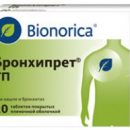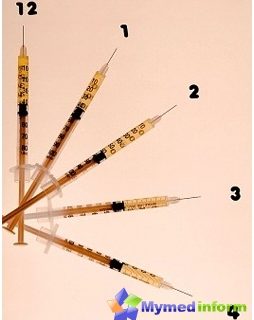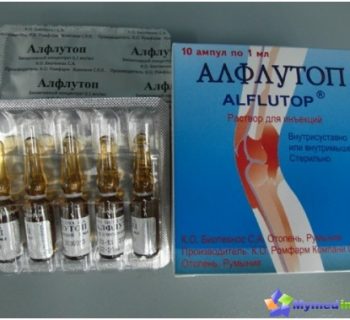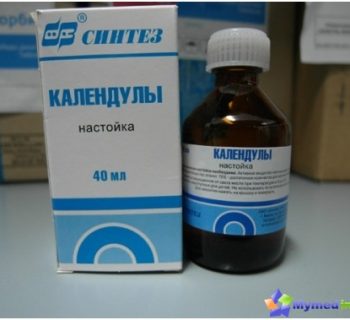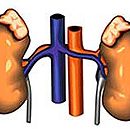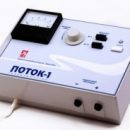Drugs are different: there are dangerous drug drugs, whose leave in pharmacies are not simply made by prescription, but only on certified special round printing documents; There are safe vitamins that practically do not comply with precautions. But what place among the diversity of therapeutic means is occupied by antibiotics?
Antibiotic - a serious medicine, but it is released without a recipe in almost all pharmacies. Doctors have repeatedly tried to fight this, take any measures to tighten the sale of antimicrobial funds, but today the situation has not changed: any antibiotic can be bought in a pharmacy without any medical recommendation.
But even a prescription leave does not guarantee the proper use of medication. In this article we will look at the main difficulties and errors of antibiotic therapy.
Radiation of treatment with antibiotics
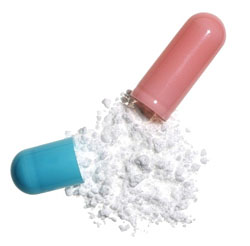
Whether an antibiotic is needed in this particular situation with this particular patient - a difficult question even for a competent specialist. Independently answer him the patient is not under power. It is unlikely that you can evaluate the severity of your condition, listen, are there whether whether they are in the lungs and what kind of character are they, deciphering the tests and make the appropriate conclusion. Hence the most important conclusion: Antibiotics must prescribe a doctor!
Unfortunately, this rule is violated. And three errors are the most common: taking an antibiotic with increasing temperature, self-treatment against antimicrobial drugs from viral infections (Rudeness, Influenza, ORVI) and preventive medication:
- Increased temperature. Antibiotic is not an antipyretic agent, but a drug intended for the destruction of certain types of bacteria. At the same time, fever - universal response of the body. It can be caused by both bacterial infection and viruses, and still autoimmune pathology, tumors and even nervous overvoltage. The probability of getting into the goal is very small. Therefore, the increase in temperature is above 38 degrees, as well as its bad portability - this is a reason for taking the antipyretic agent and clarify the causes of fever, but not to start antibiotic therapy;
- Treatment of viral infections. In 90% of cases, a runny nose, cough, throat error - these are signs of action of the virus, because the disease is called: ARVI - acute respiratory viral infection. Our site should be remembered that antibiotics act only on bacteria, so you begin to take them about the influenza - useless occupation. Nothing other than weakening the immunity and suppressor useful microflora for a person will not give;
- Prevention. Yes, indeed, there are some specially agreed cases when antibiotics need to be taken to prevent possible serious diseases, such as especially dangerous infections: cholera, Siberian ulcers; Their use and in front of surgical operations are substantiated. There are also special categories of people who need preventive reception of antimicrobial drugs, for example, people with immunodeficiency. But for the average full of a healthy person to take antibiotics during the cold to prevent, let's say, hymorit - it's like shooting from guns on sparrows.
Choosing a medicine
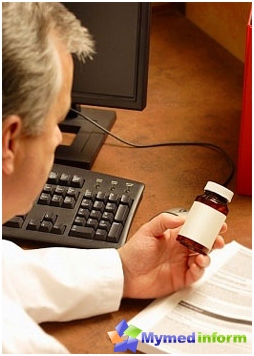
Selection of a suitable drug - also a doctor's task. After all, in order to choose the antimicrobial agent, it is necessary to represent what bacteria is most often caused by this disease, and which antibiotics effectively affect these bacteria.
Of course, it is best to know the causative agent for the disease and its sensitivity to different groups of drugs. For this, the patient must pass a special microbiological analysis, for example, sputum or separated from the wound. But the definition of the microbe is a rather long process, it takes about 7-10 days. Neither the doctor nor the patient can wait so much time, so the doctor appoints an antibiotic as it were «at random», Guided by theoretical knowledge and clinical picture of the disease.
For each diagnosis there are preparations of the first line, from which treatment is usually begins (for example, it is amoxiclav, alternative preparations for sinusitis (they are used if the patient has the intolerance to the first row drugs and with their ineffectiveness) and reserve antibiotics designed to treat complex complexities and not amenable to therapy of cases.
I do not recommend readers of MirsEs to buy the most expensive antibiotic (even if you have money on it). Prices are overestimated just on reserve, reserve drugs that should be used in exceptional cases.
Proper dosage
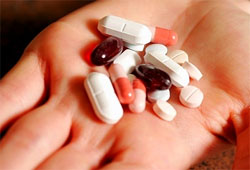
Antibiotic dose is also appointed by a doctor. And for the patient it is very important to accurately observe the prescribed dosage of medication.
Do not reduce the dose of medication if you have become better. Antibiotic - such a means that acts on the principle «either all or nothing». If you take it in the desired dosage, the drug kills pathogenic bacteria. But if the concentration of medication in the blood does not reach the desired indicators - then bacteria will not be killed, they are simply «Get to know» with medicine and develop sustainability. On such «Prepared» Microbes This antibiotic will no longer affect even enough dosage. Treatment of insufficient doses of antibiotics - one of the most important reasons for reducing the effectiveness of these drugs around the world.
On the other hand, the dose is fraught with an increased load on the liver, kidney and the danger to the natural microflora.
Multiplicity of reception
Each medicine is prescribed with a certain frequency: 1, 2, 3 times a day and t. D. The multiplicity of reception of the antibiotic depends on the time of his life in the body. For example, those drugs that are prescribed 3 times a day are valid for about 8 hours, and then output through the liver or kidneys. Therefore, if a three-time reception of the drug is assigned to you, it means that it must be taken strictly after 8 hours, and not just 3 times a day at any time.
What to do if you forgot to take a tablet? You need to drink a medicine as soon as possible, however, if it remains quite a bit of time until the next reception, you do not need to take two portions of the drug at the same time. This will not help catch up, but the double dose may be toxic for the body.
Duration of treatment
The course of antibiotic therapy is rarely shorter than 7-10 days (the exception is some medicines, for example, azithromycin, which can be assigned for 3-6 days by a special scheme). But only rare conscientious patients continue to receive medicines, feeling improving. It seems: temperature slept, well-being excellent, «Why breed the body?». It's a delusion.
The antibiotic is able to cope with the microbe, but for this you need not only the optimal concentration of the medicine, but also enough time. If the patient is selflessly cancel the medicine, as soon as he left him - the same thing happens as when a dose is reduced: «Lost» Microbe simply «Get acquainted» with a drug and produces stability to it.
In addition, the unfinished treatment course can lead to the development of complications or to the transition of an infection in a chronic form.
At the same time, if after 2-3 days of medication reception you do not get better - perhaps the drug does not act on your microbe. You need to re-consult a doctor so that it appoints another tool.
Communication with meals
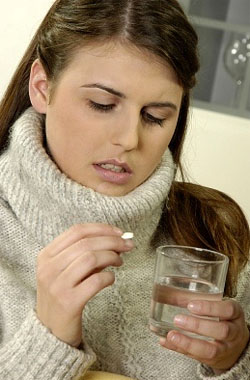
Why some medicines can be consumed after meals, others before meals, and the third - at any time? The fact is that some drugs are associated with food (while losing their activity), and others. Medications that can not be taken on an empty stomach often damage the gastric mucosa.
Regardless of food, it is possible to take amoxicillin, almost all cephalosporins and some macrolides (spiramycin, clarithromycin, josamamicin).
2 hours after eating or 1 hour before it - that is, on an empty stomach - you need to take the remaining macrolids (except those listed above), ampicillin.
Tablets or suspension of cefuroxime need to be used while eating, as it accelerates the absorption of medication.
Some medicines (Furazolidon) do not combine with beans, smoked, beer, cheeses, wine. So be sure to carefully read the instructions for the drug. Alcohol is not recommended to take during treatment with any antibiotics, but it is especially dangerous for erythromycin, isoniazide, metronidazole, cycloserine, Furazolidone. In general, food should be easily and healthy, to avoid reception of preservatives.
Hying antibiotics need water - the best glass is best.
What else can not be done by taking antibacterial drugs?
If you are treated with tetracycles, you can not sunbathe and visit the solarium, and not only during treatment, but also two weeks after it is completed.
Hair dryer, their painting and other types of procedures are also desirable to conduct 2 weeks after the end of antibiotic therapy;
Antacids and sorbents (Smekt, Activated carbon, AlmaGel and T.D.) reduce the activity of antibiotics, so it is not recommended to take them at the same time.
Penicillins, rifampicin and tetracyclines reduce the effectiveness of oral contraceptives, so you need to think about alternative methods for prevention.
Joint reception of drugs drank blood (aspirin and its analogs) and antibiotics of penicillin and cephalosporin rows increases the risk of bleeding.
What is important to say a doctor?
Be sure to inform your doctor if:
- You are pregnant or planning pregnancy, feed the baby with breasts;
- You suffer from liver or kidney disease (or you have the only kidney);
- You suffer diabetes;
- Previously, you had allergic reactions to any antibiotics;
- You have taken antimicrobial funds in the last few months (try to remember which one);
- You are simultaneously treated with any other drugs.

